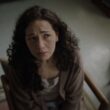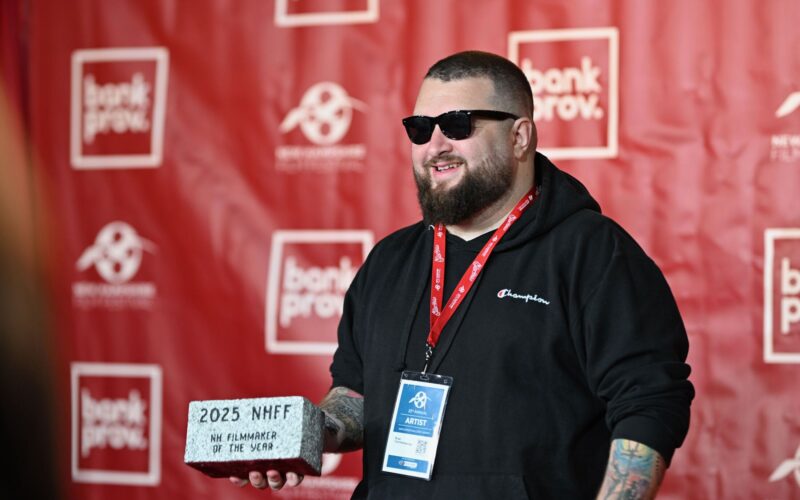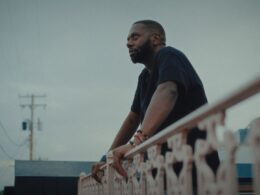Filming just south of Gainesville, Florida, Courtemanche’s latest feature follows two documentary filmmakers who uncover an AI capable of tracking a serial-killing cult, forcing them into an impossible moral dilemma. Blending the atmospheric tension of True Detective with the philosophical edge of Companion, the film aims to question not what artificial intelligence can do, but what we choose to do with it.
In this exclusive conversation with IndieWrap, Courtemanche discusses his award-winning journey, the philosophy behind What Only Cicadas See, and why he believes the most unsettling stories are born from honesty.
First off, congratulations on being named New Hampshire Filmmaker of the Year! What does this recognition mean to you at this stage of your career, especially as you begin production on What Only Cicadas See?
Honestly it means alot as a filmmaker raised in NH, this festival was kind of my hometown festival and it just so happens to be one of the most prestigious ones in the world, so to get in, and win, was honestly a shock but also like an pat on the back to myself as a child who always wanted this.
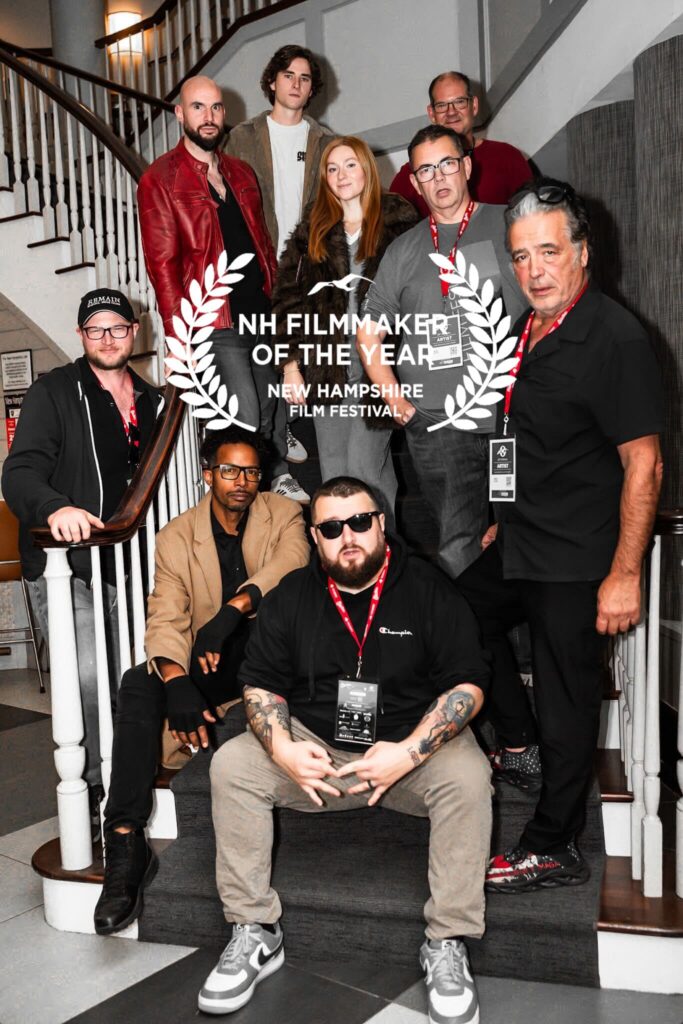
What Only Cicadas See has such an intriguing premise — “True Detective meets Companion.” How did the original idea for the film come to you?
Well I was terrified of AI, so I started to use it to see what the hype was about, and then the more I spoke with the AI the more I realized that AI itself doesn’t have any intentions they merely mirror the host, and when that clicked I had realized that there aren’t many media forms that paint AI as a neutral rather than the sensationalized worse case scenarios. So I sought out to show the neutral side of the story.
Your director’s statement mentions that you wanted to portray AI not as a villain, but as a tool. Can you talk more about how you approached writing a story that challenges the usual “AI gone wrong” narrative?
Yah I think there is a healthy bit of fear of the new, as there should be, as fear creates necessary roadblocks, I don’t think AI should replace anyone, end of story. However I think there is growth to be had with this industry, as long as AI is embraced as a tool for a user to shape, there can be a lot of advancements to be had personally and professionally. So I wanted to show how that scenario could play out conceivably today. I wanted to show a pure human story with an AI as a bystander, will this concept age well? I’m not sure, but I believe it’s a great glimpse of where we are right now.
The film’s tagline, “Even the silence has eyes,” feels both poetic and ominous. What does that phrase mean in the context of your story?
I love the tagline, I actually have multiple meanings to it. I think a lot of day to day human life is left in the unspoken, and the unseen, there is a lot happening in the world every second of every day and when we are surrounded by technology nonstop you begin to believe, whether you like it or not, that you are always being watched, whether it be by your phone, or CCTV or even a Ring doorbell, However the opposite of this is true as well. No matter how far off the grid you go, you will still be watched, it may not be technology, but it is your neighbors, local wildlife, even the stars, you’re never really truly alone, no matter where you go.
You’ve set the story in small-town Florida, far from the typical tech-thriller setting. What drew you to the Everglades and that Southern atmosphere for this project?
I’m a massive fan of the deep south of America, Even when I was living in New England almost all of my movies took place in the south and I just had to fake it really well, but now that I live in Florida stories come to me more naturally and the best part is, when I start thinking about making the movie, I don’t need to think how can I make this PLAY as the south, we can actually just be in the south. To me there is just something so musical and rich to the south, there’s a cadence and flavor here that I try my best to capture in every movie I make.

How did your early experience working on large productions like Ghostbusters and Patriots Day shape your approach to directing independent features like Cicadas?
Great question, my experience on those sets in my early days really shaped who I am today, I knew I wanted to be in the industry since I was 5 years old after watching a movie and it stuck with me, So I relentlessly pursued it until I finally made it in. Once I was there and I saw how everything truly gets made, not on an Indie level but a top of the food chain, cream of the crop way, I began to reverse engineer my career. I never really thought how can I constantly scale my Indie projects to become more like the big guys, rather how can I take what the big guys do and make it lean and efficient and in turn make it Indie.
Casting is key in a psychological thriller. What made Mary Pursell and Omar Moustafa Ghonim the right choices for Mara and Tariq?
Omar and Mary couldn’t be any more perfect for the roles, because I wrote it for them! I was writing the script when I ran into Omar at one of my west coast premieres and when we reconnected I knew I needed to work with him again, so I tailored the main character in my script to match his mannerisms and look, and I fell in love with what I was writing. Then as I was seeking his partner in crime in the film one of my producers Paul Taft had mentioned an actress he knew from his acting class that was truly a force of nature, I spoke with her and realized she was the other half of my duo, so I actually had to gender swap the second character who was originally male to fit Mary and I couldn’t be happier with my choice. I still made them audition to make sure I wasn’t leaping off a ledge blindly, but once I received the tapes I knew this was my pair, and I was ready to get to work.
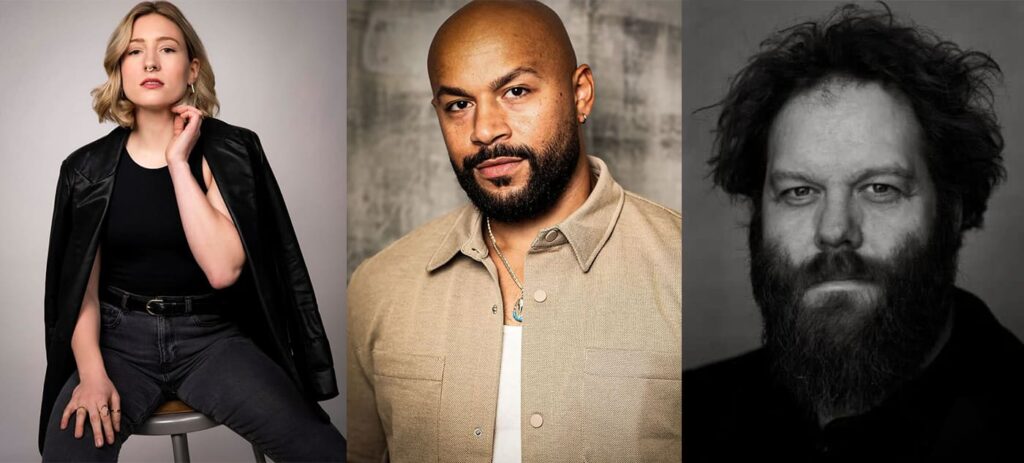
The AI character, “Echo,” voiced by Ólafur Darri Ólafsson, adds a fascinating dimension. How did that collaboration come about, and what were you looking for in the voice of an unseen intelligence?
Darri! Oh god, I love him. Here’s another perk to working in the industry for as long and in depth as I did. I was originally asking all of my industry friends if they had any actor friends who had a great voice over voice, and of my good friends Wayne Allen a Boston based costumer had made mention that he worked with Darri on a Rhode Island show NOS4A2. He put me in contact with him and we spoke and his voice was golden and his personality was even better, he agreed to be the main throughline voice of the movie, and I honestly think he is perfect. Not many people are going to think an AI should sound like that, but once they hear him they’ll wish all AI sounded like him.
You describe the film as “a slow-burn Southern thriller.” Can you share how you and your DP, Steven Schloss, are crafting that visual tone — especially balancing realism with a sense of unease?
That’s a fantastic question, I’ve compared Steven to the method actors of DP’s, when he takes on a project he wants to live in the world the characters do, I find that fascinating. We have spoken almost daily for what feels like year now sharing specific tones and shots from movies we have both seen compiling a frankenstein look book of all of our inspiration, and honestly the biggest take away is that our locations are so rich and the texture so deep that we just want to do it justice, we don’t need to force anything, just highlight the existing flavor.
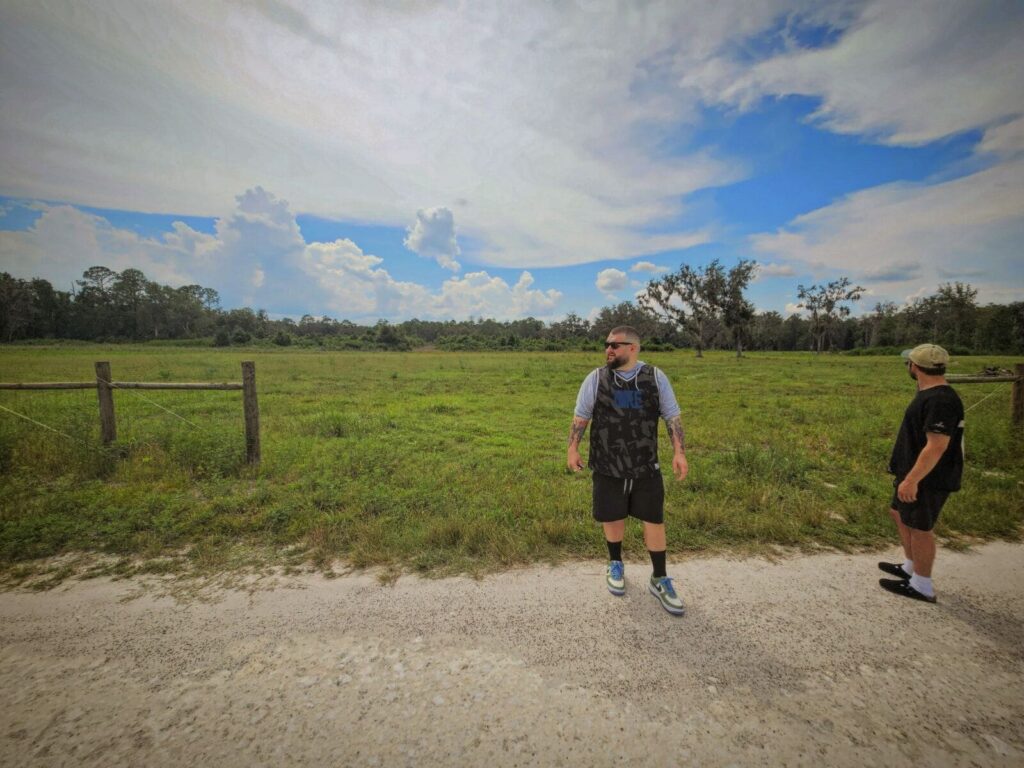
Beyond technology, Cicadas explores morality and obsession. Was there a specific moral question or personal reflection that inspired you to explore these themes?
I wanted to test how people handle passion, at what point do they crack and give up or the opposite, when does their drive turn into obsession? What does that look like in real time when fight or flight kicks in and you have to make a decision? I truly don’t think this movie has a protagonist or an antagonist, but rather two deeply flawed characters who depending on how the audience would handle the situation determines who they find to be the good guy or bad guy.
You’ve mentioned aiming for a 2027 SXSW or Tribeca premiere. What does success look like for you with this film — artistically, and also in terms of audience impact?
Success looks like multiple things for me. As the Director / Writer I want to do right by the story, the locations and my cast and crew. As the Executive Producing Company GrizzlieBrad Films LLC I want to make sure my producers Paul Taft, Laura Corda, and Brit MacFarland get the recognition they deserve by walking the largest carpets and standing on the biggest of stages, and I’d hope to do that for them on this feature. As a husband I want to pay my wife back for her time and patience and support by hopefully selling this film and getting funding for the next. As a father, I want to build a legacy so that they can see whatever they set their mind to is possible, with hard work and dedication, I want to be a living billboard for them to follow their passions.
Lastly, Florida’s indie film scene seems to be gaining real traction. As someone newly based in Tampa, how do you see What Only Cicadas See contributing to that emerging creative community?
I’m so new to the scene that I haven’t even been fully introduced to the film culture down here yet, so im hoping to make a splash and highlight the region on a national or even global stage. I love it down here, and I hope if all goes well to be invited into more small towns and cities and really highlight the state as much as I can as I love it.


